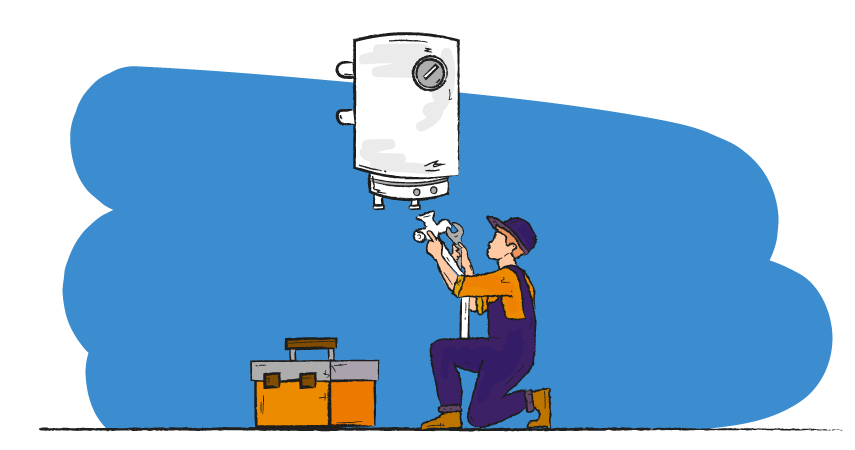How long can a landlord leave tenants without hot water?

Under Section 11 of the Landlord and Tenant Act 1985, your tenants have the right to expect you to carry out basic repairs in a ‘reasonable time’. If it’s an emergency repair, such as no heating in cold weather or no hot water, you need to act within 24 hours.
It makes sense as a landlord to act quickly for good tenant relations and avoiding lost rent, should the issue cause the tenant to move out.
Hopefully, your regular safety inspections for water and space heating equipment will help to avoid unexpected and costly breakdown problems. However, even with regular maintenance, accidents can happen, so finding suitable cover can also help. Our comprehensive Landlord Insurance includes escape of water cover as standard.
You might argue that a broken shower is not an emergency if tenant has hot water elsewhere and a bath, but a complete boiler breakdown calls for much faster action. Remember – you then have 24 hours to arrange an engineer’s visit and/or alternative source of heating and hot water.
Heating standards in private rented housing
Landlords are responsible for making sure that the entire heating system is working and will keep the property warm throughout the winter. The minimum acceptable standards are to be able to maintain at least 18°C in sleeping rooms and 21°C in living rooms when the temperature outside is -1°C.
Be prepared to arrange boiler repairs
For peace of mind, you may to decide to take out an emergency boiler repair insurance policy. Consider finding a supplier that offers quick response times and is available seven days a week.
Alternatively, a local certified engineer that you trust and can call on, and who knows what boiler models you have, may also help to provide peace of mine. Having someone local to respond to the issue quickly may help to reassure tenants that the problem will be sorted as soon as possible.
Be sure to choose a registered Gas Safe register engineer for gas boilers. For electric water heating, there are various commercial trusted trader online directories, or you can check out Trustmark, the UK’s only Government Endorsed Quality Scheme.
Accessing the property for repairs
While it doesn’t seem unreasonable to expect tenants to remain in the property for an engineer’s visit, do bear in mind that not everyone has the flexibility to take half days off work. If the tenant cannot be there, you or your agent may need to attend.
Be sure to get the tenants permission to access the property for repairs while they are out, ideally ‘in writing’ by email. You need to provide reasonable notice before turning up at their home, but they will hopefully be just as eager to get the problem fixed as you are.
Also, don’t forget any other tenants in the building. If you have to arrange essential works to the building that will involve disconnecting the water for other tenants, then then you should give them notice. Tenants may be happy to let contractors in sooner, but they do not have to let them in if they turn up unannounced.
What to do if tenants withhold rent
Tenants don’t have the right to withhold rent because of your failure to do repairs. Even if a boiler is broken and they have no hot water or heating, they should adhere to their contractual obligation and keep paying rent. In more extreme cases, you may have to start possession proceedings against them. Ideally, your prompt action will stop things getting this far.
Make sure your tenants have contact details for you or your agent to report issues instantly, as emergencies can happen at any time. Not knowing who to call or not getting a response may cause more stress unnecessarily for your tenants.
Finding suitable landlord insurance
If plumbing problems lead to issues such as escape of water, your building and contents may be damaged. A comprehensive landlord insurance policy such as ours can help you financially when it comes to repairs and making the property suitable to live in again.
The sole purpose of this article is to provide guidance on the issues covered. This article is not intended to give legal advice, and, accordingly, it should not be relied upon. It should not be regarded as a comprehensive statement of the law and/or market practice in this area. We make no claims as to the completeness or accuracy of the information contained herein or in the links which were live at the date of publication. You should not act upon (or should refrain from acting upon) information in this publication without first seeking specific legal and/or specialist advice. Arthur J. Gallagher Insurance Brokers Limited trading as Just Landlords accepts no liability for any inaccuracy, omission or mistake in this publication, nor will we be responsible for any loss which may be suffered as a result of any person relying on the information contained herein.
FP156-2024




